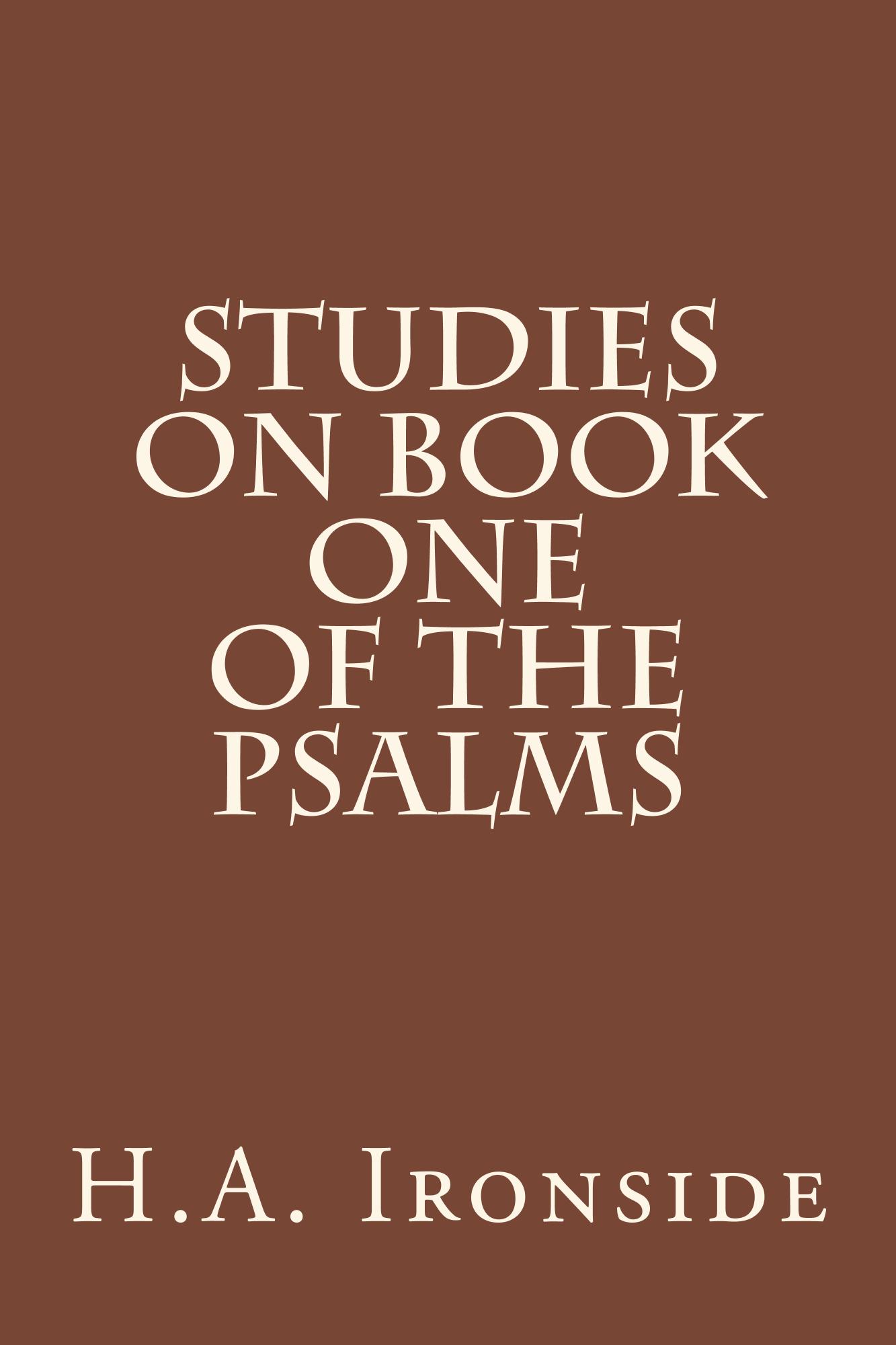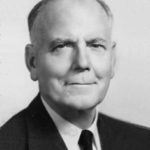Description
Studies on Book One of the Psalms
by
H.A. Ironside
Contents
Introductory Address and Exposition Of Psalm 1. 4
The Suffering People Of God (Psalms 3, 4, and 5) 19
Through Trial To Glory (Psalms 6 To 8) 29
The Man Of The Earth (Psalms 9 To 12) 38
The Cry Of God’s People (Psalms 13 To 15) 49
The Man Christ Jesus (Psalm 16) 56
Interceding With God (Psalm 17) 66
The Power Of His Resurrection (Psalm 18) 73
The Testimony Of Creation And The Word Of God (Psalm 19) 83
Psalms Of The Kingdom (Psalms 20 And 21) 92
The Shepherd Psalms (Psalms 22, 23, And 24) 101
The Basis Of Confidence (Psalms 25, 26, And 27) 114
Prayers And Praises (Psalms 28 To 31) 125
The Blessed Man (Psalm 32) 136
A Call To Worship (Psalm 33) 145
The Radiant Life (Psalm 34) 150
Fellowship With The Holy One (Psalms 35, 36, And 37) 155
Man’s Failure And God’s Grace (Psalms 38 And 39) 166
The Psalm Of The Burnt Offering (Psalm 40) 172
Considering The Poor (Psalm 41) 178
Preface
I have fought a good fight, I have
finished my course, I have kept the
faith: Henceforth there is laid up
for me a crown of righteousness,
which the Lord, the righteous judge,
shall give me at that day: and not to me
only, hut unto all them also that love
His appearing:—2 Timothy 4:7, 8
Harry A. Ironside is now at home with the Lord his Saviour, whom he deeply loved and so devotedly served.
The publishers are conscious of their deep privilege in preserving in book form these studies on the first book of the Psalms.
These addresses were originally given by Dr. Ironside at the Moody Memorial Church in Chicago. Illinois, and printed in the Moody Church News. They are now reproduced in the earnest hope that they will be a means of rich blessing “unto all them also that love His appearing.”
The Publishers
New York, December 1951
Introductory Address and Exposition Of Psalm 1
As we are about to enter upon the study of this book, I want to say first a few things of an introductory character. I suppose there is no portion of Holy Scripture that has meant more to the people of God, particularly to tried and afflicted believers down through both the Jewish and Christian centuries, than the book of Psalms. Of course the worship expressed in this book does not rise to the full character of Christian worship as in this present dispensation of the grace of God.
As we read the Psalms we need to remember that when they were written our Lord Jesus had not yet become incarnate; consequently, redemption had not been effected, and so the veil was still unrent. God, as it were, was shut away from man, and man was shut out from God; and so the worshiper of Old Testament times gives expression to certain things that would not be suitable from the lips of an instructed worshiper in this present age of grace.
David prays, “Take not Thy Holy Spirit from me.” No well instructed Christian would pray that today, for we know now that we have received the Holy Spirit to abide with us forever. We have been sealed by the Holy Spirit until the redemption of the purchased possession. And then there are a great many of the prayers in the book of Psalms that imply a hidden God. But today God has come out into the light, since our Lord Jesus, by His sacrificial death upon the Cross, has rent the veil and opened up the way into the immediate presence of God for poor sinners and enabled God to come out to man in all the perfection of His glorious Person.
There are some churches, and I do not speak now in any critical sense, that use the book of Psalms as the expression of their prayers and praise. Because this book is inspired they think of it as far superior, as a vehicle of prayer and praise, to any compilation of hymns or sacred songs written by uninspired men. But I am sure they are mistaken as to that, for since the coming of the Holy Spirit He has opened up truth to His people in this dispensation of grace that was utterly unknown to those in the days when the Psalms were written. But granting all that, we find a great deal that is precious and a great deal that is wonderfully helpful to feed the soul and uplift the spirit as we study these Old Testament Psalms.
It is a new thought to some people that we have not only one book of Psalms, but in reality there are five books. Our Bible begins with the Pentateuch, from Genesis to Deuteronomy; and the entire Bible, it has been pointed out by others, seems to be built upon that Pentateuchal foundation.
The book of Genesis is the book of life and the book of election; the book of Exodus is the book of redemption; Leviticus is the book of sanctification; Numbers is the book of testing and experience; Deuteronomy is the book of divine-government. It is a very interesting fact that the book of Psalms consists of five books also and that these five link perfectly with the five books of Moses. The first book of the Psalms is from Psalm 1 through 41, and you will notice how Psalm 41, verse 13, concludes the first book: “Blessed be the Lord God of Israel from everlasting, and to everlasting. Amen, and Amen.” The second book begins with Psalm 42 and goes on through Psalm 72. Notice how this book ends, Psalm 72:18-20: “Blessed be the Lord God, the God of Israel, who only doeth wondrous things. And blessed be His glorious name for ever: and let the whole earth be filled with His glory; Amen, and Amen. The prayers of David the son of Jesse are ended.” Then the third book comprises Psalms 73 to 89 and ends, Psalm 89:52, with the words: “Blessed be the Lord for evermore. Amen, and Amen.” The fourth book includes Psalms 90 to 106. Look at the closing verse of this book, Psalm 106:48: “Blessed be the Lord God of Israel from everlasting to everlasting: and let all the people say, Amen. Praise ye the Lord.” And the fifth book is from Psalm 107 to 150, and you know how that winds up, verse 6: “Let every thing that hath breath praise the Lord. Praise ye the Lord.”
The doxologies that close each of the books (and you do not find them anywhere else in the Psalms) enable us to distinguish them clearly. We have a progressive line of truth in accord with the subjects treated in the five books of the Pentateuch, and the remarkable thing is that in the first book of Psalms the great outstanding themes are, Divine Life and Electing Grace—God’s wonderful provision of grace, just the same as in the book of Genesis. In the second book of Psalms the great outstanding theme is Redemption, as in Exodus. And in the third book of Psalms we are occupied with Sanctification, communion with God, the way into the sanctuary, as in the book of Leviticus. The fourth book is the darkest one, for it is the book of testing, the book of trial, as in Numbers. Many of these Psalms have to do with bitter, hard experiences that the people of God often have to go through in this world. And then the last book of Psalms is the book that brings God in as overruling in all the trials, the difficulties, and perplexities—the divine government, as in the book of Deuteronomy—God bringing everything out at last to His honor and glory and to His people’s eternal blessing.
I do not know how anybody could get any conception of the remarkable design of the Word of God, of which I have just given you a little intimation, and question for one moment its divine inspiration. Only God could have given this wonderful order. While the books of the Pentateuch were all written by one man, Moses, the books of the Psalms were written by many men. We call this book ordinarily, “the Psalms of David,” but David did not write them all. A great many of them were written by other people. They were the Psalms of David in the sense that we call the old gospel hymn book, “The Moody and Sankey Hymn Book.” Moody did not write any of the hymns and Sankey only a sprinkling of them, but these men compiled the book. If you go over to Great Britain today you can go to the original publishers of it and say, “I would like to have a copy of the Moody and Sankey Hymn Book,” and they will hand you a book with twelve hundred hymns in it. In the old days this book had only about six hundred hymns. It was compiled by them originally, but a great many others have been added from time to time, and to-day there is this vast collection. We can think of the book of the Psalms of David in the same way. It was he in the first place who compiled this book, and it was a kind of hymn book in the temple worship. Doubtless many of these were used before the temple was built, when David brought the ark of the covenant to Jerusalem and built a special sanctuary for it. But after David passed away, Solomon added more Psalms to the book, perhaps largely through the direction of Ethan and Asaph and several others who were singers in the temple choir after that glorious sanctuary had been built by King Solomon.
In all probability two Psalms in this wonderful little book claim Moses as the author. If you turn to the ninetieth Psalm you will see at the heading, “A Prayer of Moses the man of God”; while the ninety-first Psalm has no heading at all. The reason is this: according to the Jewish authorities, originally Psalms 90 and 91 were one, but later on for convenience’ sake, just as we sometimes cut our long hymns into two, this long Psalm was cut into two; and in Psalm 90 we have the first man, and in 91 the Second Man. But in all probability it was all written by Moses.
Several of the Psalms seem to have been written by King Solomon. We are told that Solomon wrote a great many songs. We have in our Bible the Canticles, “The song of songs, which is Solomon’s” (Song of Solomon 1:1). But we also have one or two Psalms that bear his name. And then there are other Psalms by different writers which we will notice as we go on.
It would seem as though some of the Psalms could not have been written until after the people returned from Babylon. You will remember the Psalm that says, “By the rivers of Babylon, there we sat down, yea, we wept, when we remembered Zion. We hanged our harps upon the willows in the midst thereof. For there they that carried us away captive required of us a song; and they that wasted us required of us mirth, saying, Sing us one of the songs of Zion. How shall we sing the Lord’s song in a strange land?” (Psa. 137:1-4). It is not likely that David wrote this, but it was evidently written after the people had been carried to Babylon, and when they returned to their land it was added to the book. We shall find as we go on that there are some very interesting lessons to be gleaned from the settings of these various Psalms.



Reviews
There are no reviews yet.